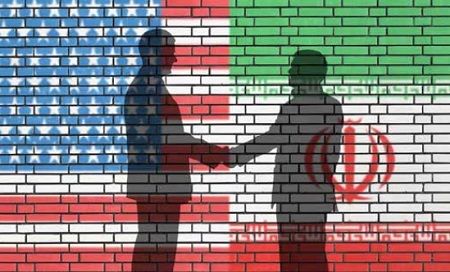
by Doreen Edelman, Andrew Bisbas and Abbey Baker
Every day we hear more and more about the changing landscape of American–Iranian politics, and, if you read the newspapers, it looks like some U.S. businesses are beginning to benefit. It’s a good potential market. There are approximately 80 million consumers, a young population and an interest in U.S. goods and investment in the United States. But, what is really allowed and what does that mean for Iranian EB-5 investors? Is unencumbered Iranian investment in the U.S. the new reality?
The short answer is, no. It’s not that simple. But there are opportunities, and EB-5 investment is possible if you do your homework and stay compliant with the rules.
EB-5 Investment Procedures
An Iranian investor looking to obtain a U.S. EB-5 Visa through investment in a regional center must go through a variety of procedures in order to utilize the EB-5 program. First, potential investors need to determine whether their EB-5 funds transfer falls within the Department of Treasury’s Office of Foreign Assets Control’s (“OFAC”) General License. They may need an opinion letter from legal counsel providing financial institutions evidence that the transfer does not violate the sanctions program. Restricted party screenings must also be completed to ensure the individuals and entities involved in the investment are not U.S. government prohibited parties. Such parties are restricted from doing business in the United States or with a U.S. Person (this includes U.S. businesses).
Additionally, before becoming U.S. persons, Iranian individuals must:
- Absolve themselves of any involvement in any Iranian company, including foreign branches of any Iranian company;
- Rid themselves of any shares in any Iranian company;
- Cease providing any remote contributions or advice to any Iranian company; and
- Cease collecting any salary from any Iranian company, including foreign branches of any Iranian company.
Individuals planning to become U.S. persons should ensure all their personal funds are transferred out of Iran at once because, once they have become U.S. Persons, they will need a Specific License from OFAC to move any additional personal funds out of a sanctioned bank and into the United States or to collect a pension or retirement from any Iranian company. Obtaining such a license can take 8-12 months. Without OFAC approval, banks are not allowed to, and will refuse to transfer Iranian funds into the United States, and financial transfers from Iran to the U.S. must adhere to strict procedures.
What Has Changed?
The U.S. government has opened up certain Iranian industries to U.S. business and their foreign subsidiaries. It has also become easier for foreign companies with connections to the U.S. to take advantage of opportunities in Iran. But the gates are not completely open, and many sanctions remain in place. U.S. parties are still prohibited from entering into most activities with or in Iran.
On January 16, 2016 the U.S. government implemented sanctions relief primarily on what are known as “secondary sanctions,” or those sanctions imposed by the U.S. government against non-U.S. Persons. The OFAC issued a variety of pronouncements including a General License for the importation of certain Iranian foodstuffs and Iranian-origin carpets, a favorable licensing policy for opening the Iranian commercial airline market to U.S. Persons, and a General License authorizing U.S.-owned or -controlled foreign entities to engage in activities involving Iran in which the U.S. parent does not participate. However, such activities still cannot involve the U.S. financial system or other U.S. goods or services. While these changes are certainly a step to bilateral trade, U.S. and Iranian investors still are bound by the majority of sanctions that have been in place for years.
How Iranian EB-5 Investors Can Work Within the System
Always:
- Get it in Writing – Get a current legal opinion explaining what you can and can’t do and always include the details. Explore all aspects of a transaction. Some activities are incidental to approved actions and are considered permitted, and others are not.
- Screen All Parties – Restricted party screenings ensure that no U.S. government prohibited parties are involved in the transaction. Each party must be screened and reviewed separately.
- Document All Decisions and Reasoning – Ensure you know all the parties involved, their nationalities, and the legal limits of the transaction. Additionally, perform anti-corruption due diligence and document your diligence in writing for further protection.
Looking Forward
OFAC will continue to revise the Iran sanctions and remove certain entities from restricted parties lists as the political situation evolves. Continue to check in with your legal counsel for updates as the U.S.-Iranian relationship progresses. In the meantime, all parties should continue to fulfill OFAC requirements for Iranian investment and continue completing restricted party due diligence to maintain compliance in this changing environment.
About the Authors
Doreen Edelman is a shareholder and cochair of Baker Donelson’s Global Business Team. With 25 years of experience counseling companies on export compliance matters and global expansion, Edelman advises clients on their export and import compliance obligations, conducts internal audits and training, prepares voluntary disclosures, and assists companies with product classification and licensing applications. She works daily with the Office of Foreign Assets Control (OFAC) to help clients navigate the requirements for Iran, Cuba, and Russian trade as well as monitoring restricted transactions.
Andrew Bisbas is an associate in Baker Donelson’s Washington, D.C. office. He works on matters regarding import and export compliance including import and export controls, economic sanctions, anti-bribery compliance, EB-5 immigration matters, CFIUS foreign investment issues, and Customs and Border Protection (CBP) regulations. He works with businesses to classify items for import and export and acquire licenses from the Department of Commerce’s Bureau of Industry and Security (BIS), the Department of State’s Directorate of Defense Trade Controls (DDTC), and the Department of the Treasury’s Office of Foreign Assets Controls (OFAC).
Abbey Baker is an associate in Baker Donelson’s Washington, D.C. office and a member of the Firm’s Global Business Team where she focuses her practice on trade, assisting companies expanding their businesses and engaging in the global marketplace while also meeting U.S. and foreign regulatory requirements. Baker counsels clients on foreign business climates, regional industry opportunities and obstacles, foreign and domestic governmental obligations, OFAC sanctions, and transaction risks.
DISCLAIMER: The views expressed in this article are solely the views of the author and do not necessarily represent the views of the publisher, its employees. or its affiliates. The information found on this website is intended to be general information; it is not legal or financial advice. Specific legal or financial advice can only be given by a licensed professional with full knowledge of all the facts and circumstances of your particular situation. You should seek consultation with legal, immigration, and financial experts prior to participating in the EB-5 program Posting a question on this website does not create an attorney-client relationship. All questions you post will be available to the public; do not include confidential information in your question.







